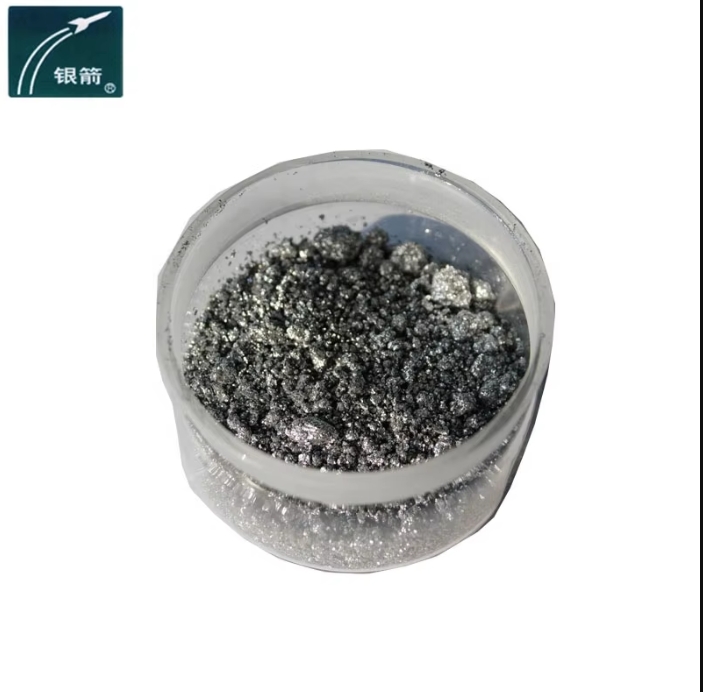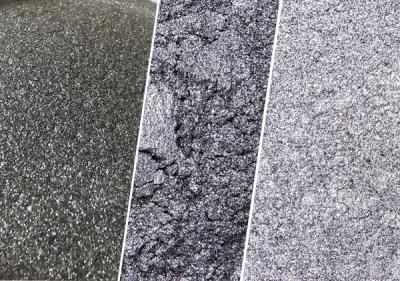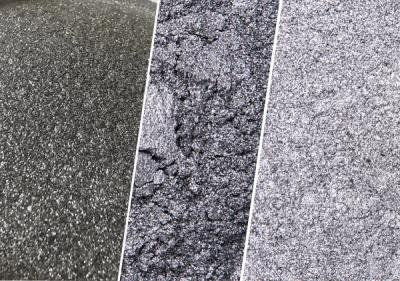Water - based aluminium paste has become an important material in many industries, and its quality is determined by multiple factors that influence its performance and application results.

The size and distribution of aluminium particles are crucial factors. Fine and uniformly distributed particles contribute to better performance. Smaller particles often lead to a smoother and more refined appearance in the final product. For example, in coatings, they can provide a more even and shiny finish. A narrow particle size distribution ensures consistent behavior during application and in the final product. If the distribution is wide, it may cause issues such as uneven coverage or variations in gloss.
The shape of the aluminium particles also affects the quality. Spherical or near - spherical particles are generally preferred. They have better flowability in the water - based medium, which facilitates better dispersion. Irregularly - shaped particles can cause agglomeration and make it difficult to achieve a homogeneous mixture. Moreover, the shape influences the light - reflecting properties, with spherical particles often providing more uniform reflectivity.
The choice of dispersant is vital for maintaining the stability of the water - based aluminium paste. Different types of dispersants have different affinities for aluminium particles. An appropriate dispersant should be able to effectively coat the particles, preventing them from aggregating. For example, some anionic or non - ionic dispersants are commonly used. Their chemical structure and properties determine how well they can keep the particles separated in the water - based system.
The pH value and ionic strength of the water - based system play significant roles. The pH affects the surface charge of the aluminium particles and the performance of the dispersant. An optimal pH range is required to ensure that the particles remain stable and well - dispersed. Deviations from this range can cause the particles to flocculate. Similarly, the ionic strength should be carefully controlled. High ionic strength can disrupt the electrical double layer around the particles, leading to instability.
The ability of the water - based aluminium paste to adhere to the substrate is a key quality indicator. Good adhesion ensures that the coating remains intact under various conditions. It depends on the nature of the paste formulation and the surface properties of the substrate. The presence of suitable binders in the paste can enhance adhesion. For instance, in the application on metal or plastic substrates, specific binders are designed to improve the bond between the paste and the substrate.
Water - based aluminium paste should be able to withstand environmental challenges such as moisture, UV radiation, and chemical exposure. The quality of the paste determines its resistance to these factors. High - quality pastes contain additives or have formulations that provide protection against oxidation, corrosion, and degradation caused by UV light. This is especially important in outdoor applications where the coated surface is constantly exposed to the elements.
The drying speed and the quality of film formation are also important. A proper drying process ensures that the paste forms a continuous and uniform film. Slow drying may lead to dust pickup or other contamination during the process. On the other hand, too fast drying can result in a non - uniform film with cracks or poor adhesion. The film - forming properties are related to the composition of the paste, including the types of resins and other additives present.
The quality of the starting materials used in the production of water - based aluminium paste is fundamental. High - quality aluminium powder and other additives are essential. Any impurities in the raw materials can affect the properties of the final product. For example, impurities in the aluminium powder can lead to color variations or reduced stability of the paste. Therefore, strict quality control during the procurement of raw materials is necessary.
During the manufacturing process, parameters such as mixing speed, temperature, and processing time can impact the quality of the paste. Controlled and optimized processing conditions are required to ensure the uniformity of the product. For instance, proper mixing speed ensures that the aluminium particles are evenly distributed in the water - based medium, and the correct temperature helps in the proper dissolution and reaction of the additives.
Regular quality testing and monitoring throughout the production process are indispensable. Tests for particle size analysis, dispersion stability, coating performance, and other relevant parameters should be carried out. By detecting and addressing any quality issues in a timely manner, the consistency and reliability of the water - based aluminium paste can be maintained.
In conclusion, the quality of water - based aluminium paste is determined by a combination of these factors related to the aluminium particles, dispersion system, coating performance, and the manufacturing process. Understanding and controlling these factors are crucial for producing high - quality water - based aluminium paste for various industrial applications.




